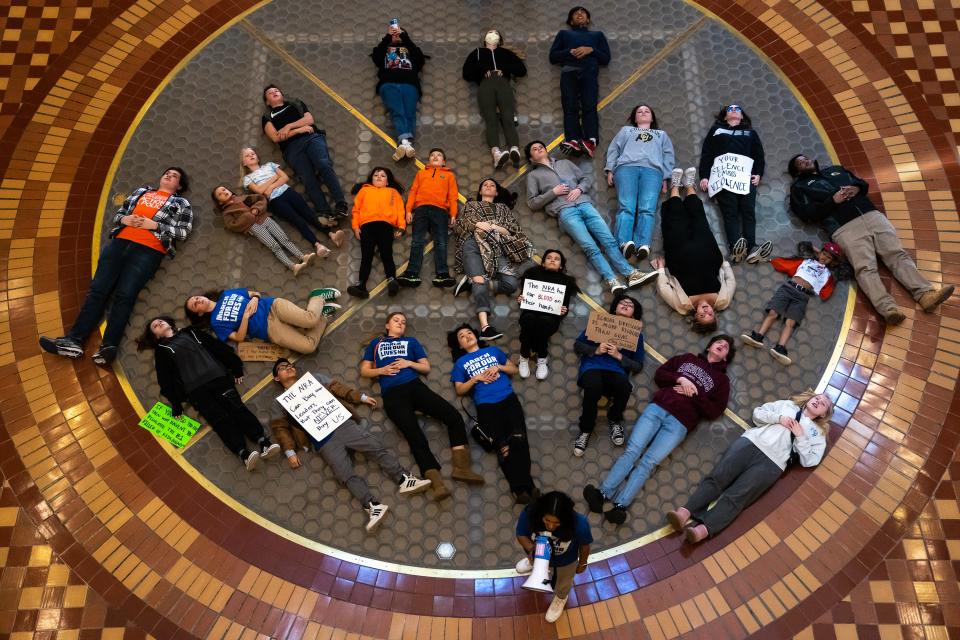Opinion: Gun violence and mental illness are not the same thing
In the United States and in Iowa, we have a gun violence crisis, and we have a mental health crisis. They are not the same thing.
In the wake of mass shootings, there are often misguided attempts to tie all acts of violence to mental illness. However, this reinforces long-standing, unfounded negative stereotypes. It is important — indeed, critical to legislation now being considered by our state Legislature — that we ground these conversations in facts and data.
Mental health conditions are common around the globe, yet no other country comes close to the number of mass shootings our country experiences. In 2020, guns became the leading cause of death in the United States for children and teenagers ages 1 to 19, according to the Centers for Disease Control and Prevention. In no other peer country are guns a top cause of childhood and teenage mortality.
Research shows that predictors of future violence include a history of violence, misuse of alcohol or drugs, and/or prior convictions for violent misdemeanors. Most people with treated mental illness are never violent toward others and are more often victims of violence than perpetrators. People with mental illness are as much as 23 times more likely to be victims of violence than their peers, according to a study using data from the National Crime Victimization Survey. In reality, only 4% of violent acts in the U.S. are attributed to mental illness.

From 2020 to 2021, the percentage of U.S. homicides and suicides attributed to firearm injuries increased from 79% to 81% and from 53% to 55%, respectively, resulting in the highest percentage for homicide in more than 50 years and the highest percentage for suicide since 2001. Those statistics mean that more than half of all firearm deaths are suicides. Firearms are the most common method for suicide, representing more than half of those deaths. They are also the most lethal, resulting in death an estimated 90% of the time.
In the United States and in Iowa, it is often easier to get a gun than it is to get mental health care. One in five Americans say they have been personally threatened with a gun, according to a recent KFF poll. Nineteen percent say a family member was killed by a gun, including death by suicide, and 17% say they have witnessed someone being shot. More guns — and easier access to them — will not decrease these statistics. As a nation and a state, we must implement common-sense gun laws with due diligence and oversight that are based on real risk factors and real-time behaviors.
At the same time, we must place focus and resources on access and equity within our mental health care system. NAMI Iowa advocates for more mental health resources within our school systems, a larger and more supported mental health workforce to meet the growing demand for services, and policies that prevent and address the underlying causes of mental health stressors. In Iowa, the adult and children’s mental health systems that were created through bipartisan legislative effort are not fully functional. In fact, there are major gaps, resulting in long wait times to access mental health care for common and treatable mental health conditions. Individuals utilizing Medicaid often wait months for a first visit with a therapist. This is unacceptable.
Iowa can and must do better in addressing both our mental health and gun violence epidemics. Continuing to use incorrect assumptions and link the two together will not only prevent progress, it will result in additional harm and tragedy for Iowa children and families.
Peggy Huppert is the executive director of NAMI Iowa.
This article originally appeared on Des Moines Register: Opinion: Gun violence and mental illness are distinct issues

